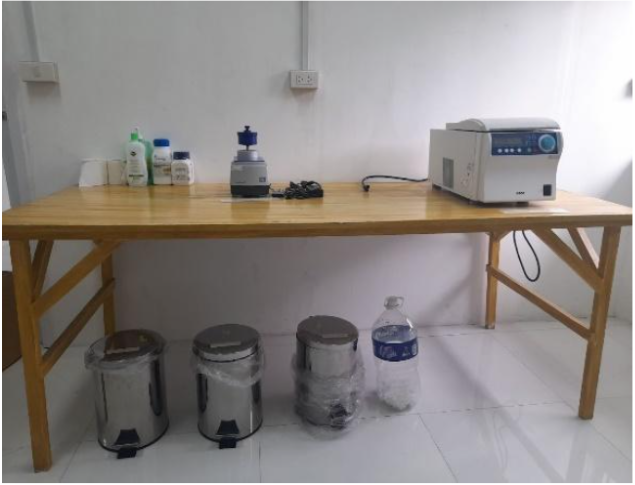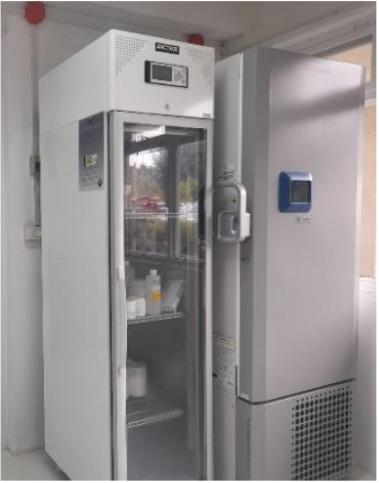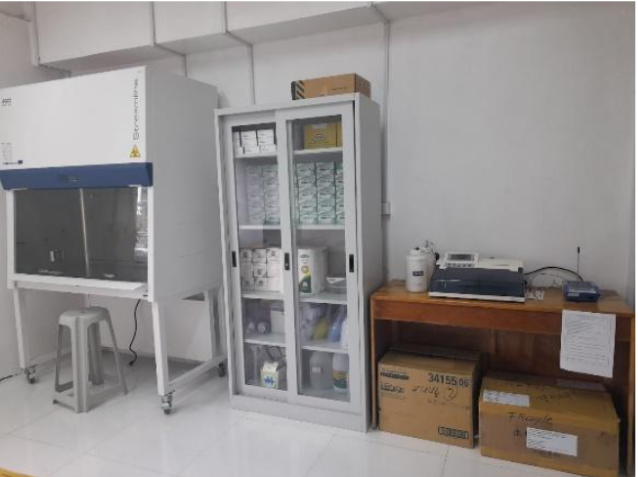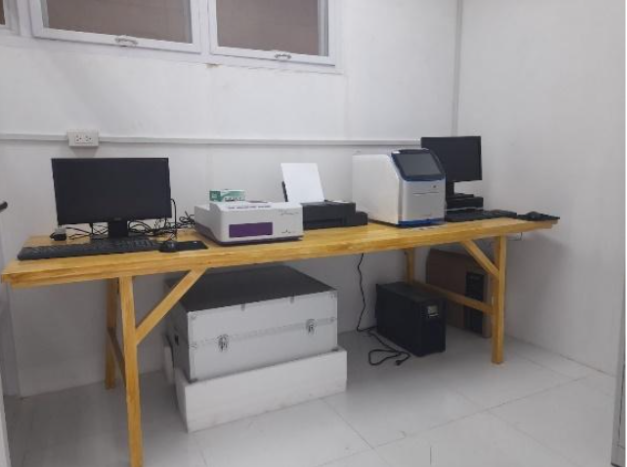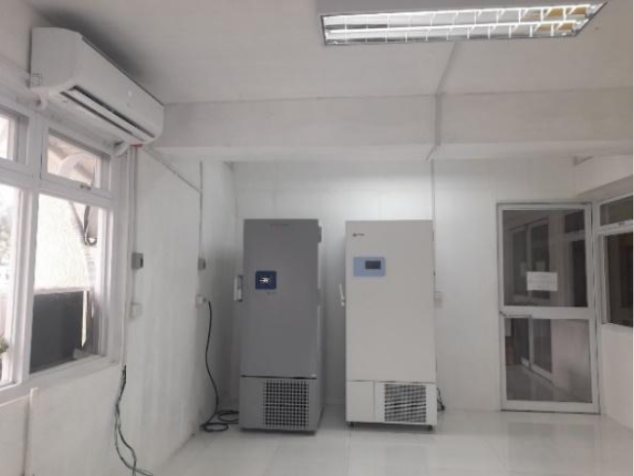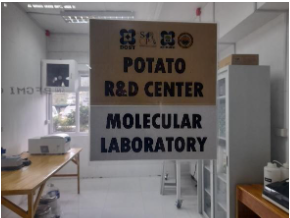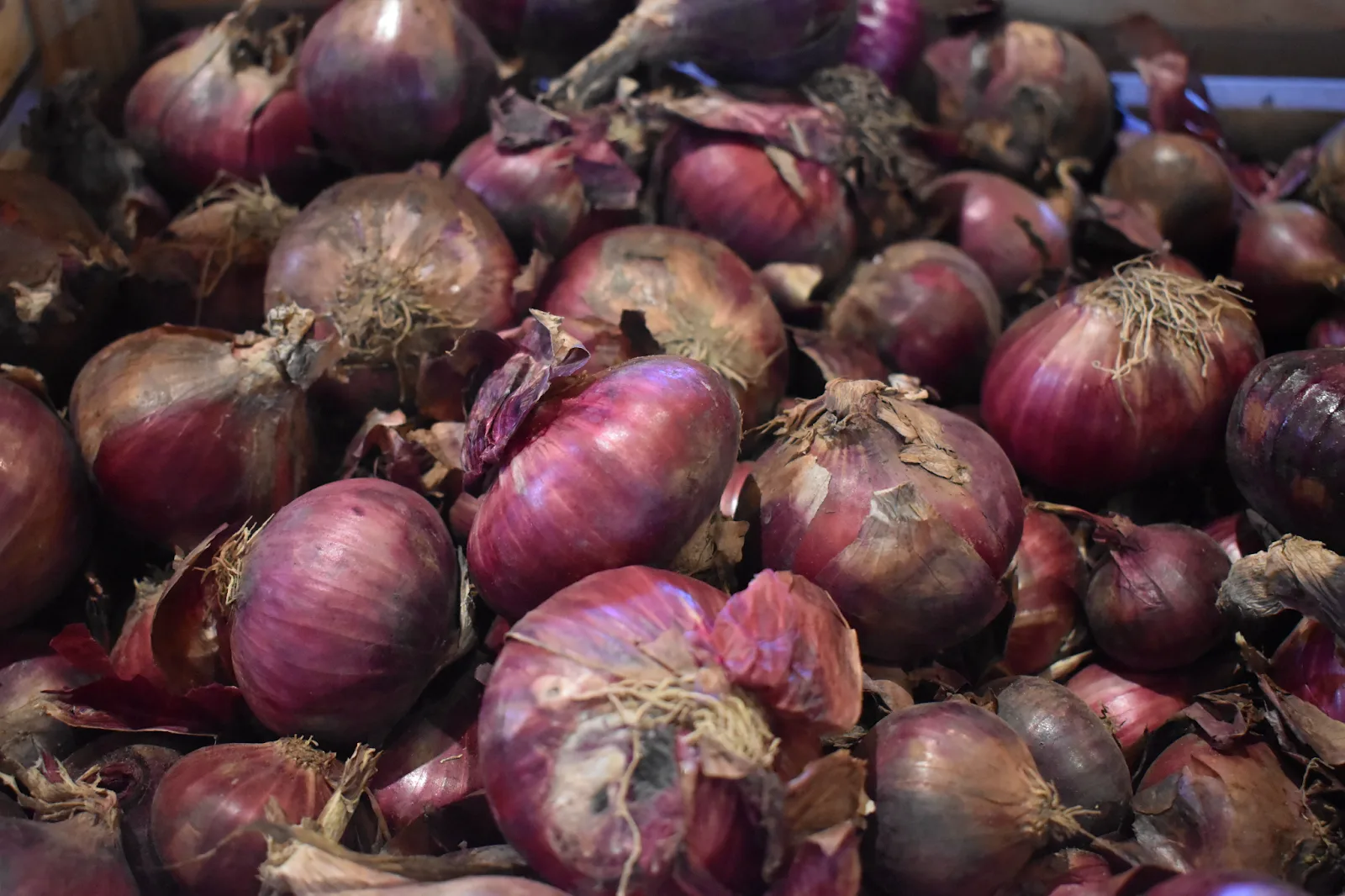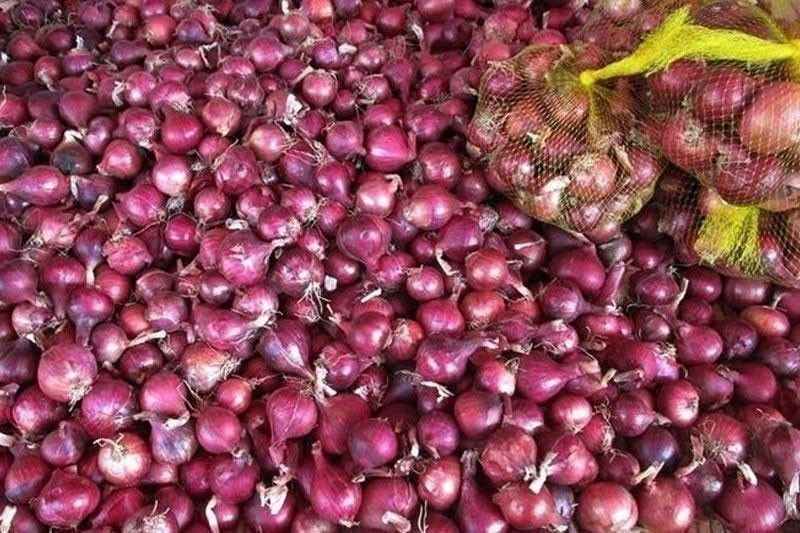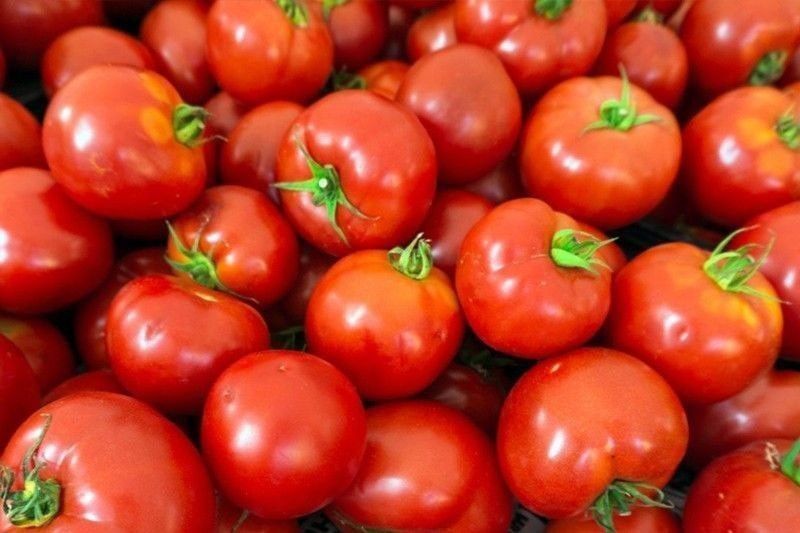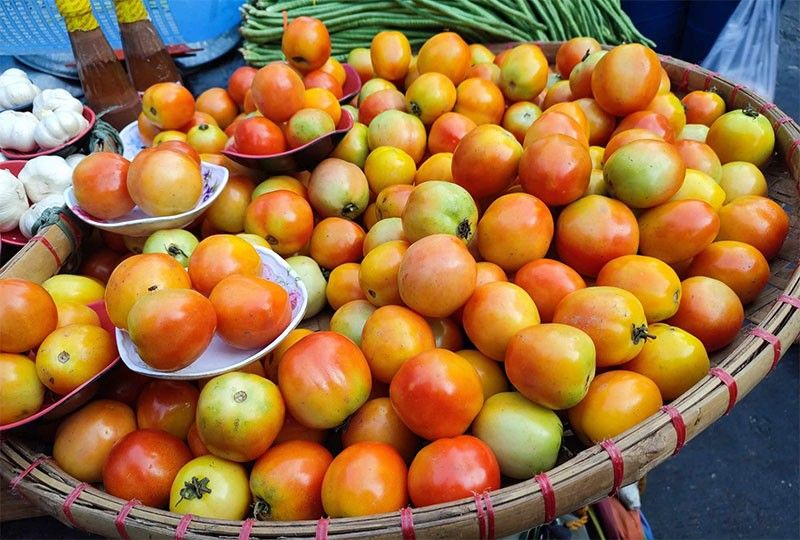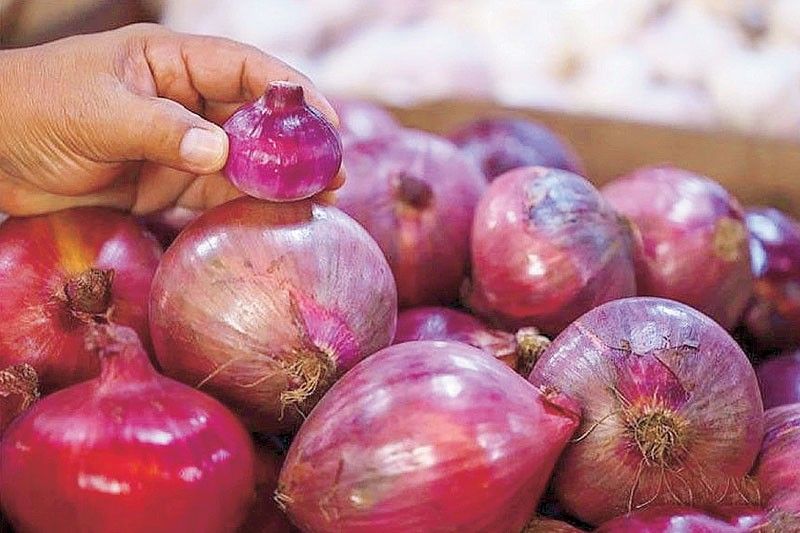Vegetables
Industry Strategic Science and Technology Program
Vegetables Industry Profile
The Philippines has a total plant area for vegetables of around 675,726 hectares (ha) in its three major islands, a total production of 5.58 metric tons (MT) and average yield of 8.26 t/ha (Philippine Statistics Authority, 2019). Its industry is a significant contributor to the economy which contributes 4.1% of the share of agriculture to the Gross Domestic Product (GDP) of the country. Also, it is an important source of livelihood and food source of Filipino households and farmers (Department of Agriculture, 2022).
Problems in the Industry
Vegetable production in the country is mired by high incidence of pests and diseases, poor access to modern varieties and production inputs, inadequate farmer skills, and inefficient marketing and distribution losses which contributes to overall production losses. These constraints result in low yield and quality, and expensive production inputs resulting in high prices of vegetables. Moreover, due to concerns on health and environmental pollutants that can affect the vegetable industry and absence of an available monitoring system for food safety, Filipinos are not assured if available vegetables in the market are safe for human consumption. Considering that vegetables are important sources of minerals, vitamins, fiber, and proteins, and are part of the food basket of Filipinos, these are serious challenges to food security and safety.
Vegetable Policies
| Policy Type | Policy Number | Policy Year | Congress | Policy Title | Policy Description | Policy Objective | Policy Link | Commodity | Classification | info_encoder_stamp | info_date_stamp | info_quashing_remarks | filepath |
|---|---|---|---|---|---|---|---|---|---|---|---|---|---|
| Resolution | House Resolution No. 1600 | 2024 | 19th | Resolution Directing The Appropriate House Committee To Conduct An Inquiry, In Aid Of Legislation, Inti The Reported Selling Of Smuggled Oniona And Other Possible Agricultural Product On Online Platforms, Which Is Detrimental To The Economy, The Local Agricultural Industry, And Our Farmers and Fisherfolks | The unabated smuggling of onions, rice, vegetables, and other agricultural commodities in the country not only jeopardizes farmers' livelihoods and the local markets but also Filipinos' health as these imported products may not have the necessary permits or licenses that would certify them as safe for consumption; On February 20, 2024, news reports show that the sale of smuggled onions is booming online. These illegally sourced or “smuggled” onions are sold for as low as P25 per kilo on Facebook. Smuggled agricultural products pose threats to consumers since they failed to undergo phytosanitary analysis, which is conducted either at the country of origin or, in the case of smuggled items, upon their confiscation, to ensure their safety from human consumption. On December 14, 2022, the Department of Agriculture (DA) found out that the seized 100,000 kilograms of white onions contained E. coli, making them unsafe for human consumption. Filipino consumers are also at risk from food product smuggling, as uncontrolled importation is most likely to blame for plant and animal diseases like African swine fever (ASF) and Cocolisap (coconut scale bug), that have plagued the country and the livelihood of many Filipinos. If the issue is not resolved and urgently addressed by the necessary government agencies, the sale of agricultural products that have been smuggled will continue to proliferate, exposing many Filipinos to risks and jeopardizing the livelihood of many Filipino farmers and fishermen. | This resolution seeks to conduct an inquiry into the reported selling of smuggled onions and other possible agricultural products on online platforms which is detrimental to the economy, the local agricultural industry, and farmer and fisherfolks. | null | Vegetables | Onion | Jeff | 11/22/2024 | C:\Users\trist\Documents\Formatting\Output\Vegetables_2024-11-22_processed.xlsx | |
| Bill | Senate Bill 1805 | 2023 | 19th | An Act Promoting The Use Of Aeroponics, Hydroponics And Aquaponics For The Production Of High Value Fish, Crops And Vegetables, And For Other Purposes | In view of the foregoing, and with the ever-increasing population and therefore huge demand in food supply, we must utilize advanced systems to grow more food while conserving the Earth's limited resources. The country must devote more research and development to the use of stateof-the-art technologies aimed at improving agricultural production and ensuring food security and safety. Fortunately, new trends and innovative methods in fish and vegetable farming have evolved and is being used now locally and abroad. Specifically, the adoption of soilless agriculture technologies such as aeroponics, hydroponics, and aquaponics are widely perceived as innovative measures to increase agricultural productivity. Aeroponics is the process of growing plants in an air or mist environment without the use of soil or an aggregate medium. Hydroponics is the cultivation of plants by placing the roots in liquid nutrient solutions rather than in soil. Lastly, Aquaponics combines aquaculture and hydroponic plant production in a closed-loop water system that simultaneously grows both plants and fish. | This bill seeks to promote the use of aeroponics, hydroponics, and aquaponics technology in agricultural production of high value fish, crops and vegetable to further increase volume of agricultural production and ensure food security and safety. | https://legacy.senate.gov.ph/lisdata/4056636975!.pdf | Vegetables | Null | Jeff | 11/22/2024 | C:\Users\trist\Documents\Formatting\Output\Vegetables_2024-11-22_processed.xlsx | |
| Resolution | Senate Resolution No. 445 | 2023 | 19th | Resolution Urging The Appropriate Senate Committee To Conduct An Inquiry, In Aid Of Legislation, Into The Surge In Prices Of Onions And Shoratge In Its Supply, As Well As Factors Hindering Self-Sufficiency | The production of onions in the second quarter of 2022 registered at 82.08 thousand metric tons, or an increase of 20.2 percent from 68.27 thousand metric tons in the same quarter of 2021. The singe in prices of onions was noticed in August 2022 and has since affected consumer behavior and reflected the inflation crisis in the country. The market price of onions increased to as high as PHP 700 per kilogram in December 2022 despite claims of sufficient production and exceeded the suggested retail price of P250, or an increase of 47%, from the retail price of PHP 170 in October 2022. In early January 2023, the Bureau of Customs intercepted a total of P153,615,000 worth of onions, following the order of President Ferdinand "Bongbong" Marcos Jr. to combat agricultural smuggling. The Department of Agriculture (DA) estimated that between 2019 and 2022, P667.5 million of smuggled agri-fishery goods entered the country, while the BOC intercepted P1.99 billion worth of agricultural products on its 542 seizures — about 30% of smuggled farm goods were onions. DA has recently approved the importation of 21,060 metric tons of onions, despite the fact that harvest season is already approaching, by the middle of January 2023, to address the deficiency in supply and in the hope to lower market prices. | This resolution urges the appropriate senate committee to conduct an inquiry into the surge in prices of onions and shortage in its supply, as well as factors hindering self-sufficiency | https://legacy.senate.gov.ph/lisdata/4050436912!.pdf | Vegetables | Onion | Jeff | 11/22/2024 | C:\Users\trist\Documents\Formatting\Output\Vegetables_2024-11-22_processed.xlsx | |
| Bill | House Bill No. 8809 | 2023 | 19th | An Act Strengthening And Amending Certain Provisions Of Republic Act No. 10845, Otherwise Known As The Anti-Agricultural Smuggling Act of 2016, And For Other Purposes | Agricultural smuggling remains rampant in the country. Recently, the government foiled the entry of P120 million worth of livestock and seafood products during an interagency operation against illegal importation in Navotas City on March 17, 2023. Agricultural smuggling affects locally produced farm products since these cannot compete with illegally imported ones that are priced lower. Republic Act No. 10845 was enacted to supposedly protect local farmers. However, six years after its enactment, smuggled agricultural products are still hurting local food producers and perpetrators remain unpunished. | This bill seeks to protect local farmers and prevent the economic impact of the entry of smuggled products in the Philippine markets. To ensure that economic sabotage due to agricultural smuggling is deterred, there is a need to strengthen our criminal law against smuggling, hoarding, profiteering and cartel of agricultural products. Addressing agricultural smuggling will not only protect local farmers, but also ensure food safety for all Filipinos. | https://docs.congress.hrep.online/legisdocs/basic_19/HB08809.pdf | Vegetables | Null | Jeff | 11/22/2024 | C:\Users\trist\Documents\Formatting\Output\Vegetables_2024-11-22_processed.xlsx | |
| Bill | House Bill No. 8781 | 2023 | 19th | An Act Strengthening Anti-Agricultural Smuggling Measures, Amending For The Purpose Republic Act No. 10845, Otherwise Known As The Anti-Agricultural Smuggling Act of 2016, And For Other Purposes | The 1987 Constitution provides that the State shall promote social justice in all phases of national development and that it shall develop a self-reliant and independent national economy that is effectively controlled by Filipinos and protect Filipino enterprises against unfair foreign competition and trade practices. It is with those general precepts that the Anti-Agricultural Smuggling Act (Republic Act No.10845)was enacted in 2016. However, since its implementation, the rampant smuggling of our national staple and almost all agricultural products has continued to spiral. The unusual import volumes of agricultural products in the past years, particularly rice, onions, vegetables, livestock and poultry point to the possibility of rampant mis-declaration and so many other irregularities in importation. The impact of smuggling, hoarding, profiteering, and operation of cartels in agriculture and livestock is felt by food processors and consumerswith frequent uptick in the prices of commodities. Our nation's farmers severely and atrociously affected by the flood of imported and smuggled agricultural goods. | This bill aims to expand the government's legal arsenal of antiagricultural smuggling measures via the creation of a National Anti-Smuggling Council and Task Force, the extension of period of detention for arrested suspected smugglers, among othersto effectively prosecute those behind these acts of economic sabotage. | https://docs.congress.hrep.online/legisdocs/basic_19/HB08781.pdf | Vegetables | Null | Jeff | 11/22/2024 | C:\Users\trist\Documents\Formatting\Output\Vegetables_2024-11-22_processed.xlsx | |
| Bill | House Bill No. 8094 | 2023 | 19th | An Act Promoting The Use of Aeroponics, Hydroponics and Aquaponics For The Production Of High Value Fish, Crops, And Vegetables, And For Other Purposes | It is hereby declared to be the policy of the State to reaffirm the fundamental right of every person to food security. The attainment of self-sufficiency in the field of food production is therefore adopted as a primary State policy. For this purpose, key reforms for the advancement of, and support to agricultural advancement in technology adaptation are hereby promoted in order to ensure the food security of the country. Furthermore, the State commits itself to the adoption of state-of-the-art technologies and the active development of modern, appropriate and cost-effective, and environmentally safe agricultural technology in order to ensure and provide food security and safety. | This bill seeks to promote the use of aeroponics, hydroponics, and aquaponics technology in agricultural production of high value fish, crops and vegetable to further increase volume of agricultural production and ensure food security and safety. | https://docs.congress.hrep.online/legisdocs/basic_19/HB08094.pdf | Vegetables | Null | Jeff | 11/22/2024 | C:\Users\trist\Documents\Formatting\Output\Vegetables_2024-11-22_processed.xlsx | |
| Resolution | House Resolution No. 861 | 2023 | 19th | Resolution Directing The House Committees On Economic Affairs And Trade And Industry To Conduct An Inquiry, In Aid Of legislation, On The Alleged Anti-Competitive Practices And Cartel In The Onion Industry And The Sufficiency Of The Interventions Of The Philippine Competition Commission On The Matter | Price manipulation, hoarding, and smuggling are suspected by the DA as factors driving the high price of onions. The Philippine Competition Commission (PCC) was established in 2016 to implement Republic Act No. 10667 or the Philippine Competition Act (PCA) as the main authority on competition-related matters in the country. The PCA prohibits anti-competitive agreements and abuse of dominant position in order to promote free and fair competition and prevent economic concentration that will unduly stifle competition, lessen, manipulate or constrict the discipline of free markets. Congress has to exercise its oversight functions on the PCC, which is expected to effectively perform its mandate to investigate and prosecute anti-competitive practices in the market for onions, considering the continuous rise in the price of onions. | This resolution seeks to conduct an inquiry on the alleged anti-competitive practices and cartel in the onion industry and the sufficiency of the interventions of the Philippine Competitition Commission on the matter. | https://docs.congress.hrep.online/legisdocs/basic_19/HR00681.pdf | Vegetables | Onion | Jeff | 11/22/2024 | C:\Users\trist\Documents\Formatting\Output\Vegetables_2024-11-22_processed.xlsx | |
| Resolution | House Resolution No. 673 | 2023 | 19th | A Resolution Urging The House Of Representatives Through The Committee On Agriculture And Food, To Immediately Conduct An Investigation, In Aid Of Legislation, On The Potential Overpricing An Price Manipulation Of Onions In The Market | Despite the low farmgate price of onion, its retail price in markets and stores has continued to increase. Such huge discrepancy indicates potential price manipulation which makes onions more expensive. Aside from that, smuggling and over-importation of onions remain major problems, which also severely affect local supply and prices. Traders purchase onions from farmers at a low price and sell them at a higher price during times of high demand season. An estimated 100,000 kilograms of yellow onions worth P30 million that were smuggled were seized by the authorities in late November 2022 or at a time when the price of onions are escalating. On December 21, 2022, the Bureau of Customs (BOC) seized 50,000 kilograms worth P20 million of smuggled red onions in Misamis Oriental. Only 10% of contraband onions are caught by the Department of Agriculture and the Bureau of Customs, while 90% are sold at high prices on the market, according to KMP. DA imposed the suggested retail price of onion to P250 per kilogram until the first week of January 2023. Such short-term measure has so far failed to bring down the overall price of onions in the market. President Ferdinand “Bongbong” Marcos Jr., who sits as acting Agriculture Secretary, said that the government is exploring ways of selling smuggled onions in the market to reduce the supply problem, in an apparent bid to frame the onion price spike as mere issue of supply and demand. A proposal was made immediately by the Bureau of Plant Industry (DA-BPI) to import 7,000 metric tons of red onion and 7,500 metric tons of white onion to reduce their market price. There are reasons to believe that there is an ongoing control and manipulation of onion prices from farmgate to market retail by big traders who store onions in cold storage warehouses. Large traders, importers, and even smugglers profit hugely from onions' high prices, while consumers shell out more to purchase onions as a result. | This resolution seeks to conduct an investigation on the potential overpricing and price manipulation of onions in the market. | https://docs.congress.hrep.online/legisdocs/basic_19/HR00673.pdf | Vegetables | Onion | Jeff | 11/22/2024 | C:\Users\trist\Documents\Formatting\Output\Vegetables_2024-11-22_processed.xlsx | |
| Resolution | House Joint Resolution No. 18 | 2023 | 19th | Joint Resolution Immediately Suspending The Importation Of 21,060 Metric Tons Of Onions By The Marcos Jr. Administration | The total 21,060 MT of onions to be imported, 3,960 MT will be fresh yellow onions, and 17,100 MT will be fresh red onions. Contrary to the supposed supply problem in onions being projected by the Marcos Jr. administration, price manipulation, profiteering, and hoarding of onions by cartels and large traders cause the soaring prices of onions in the market. Local production of agricultural products is also threatened by the uncontrollable smuggling of onions and other agricultural products from China. The dire situation in local onion production, wherein onions are bought at very low farmgate prices and sold at up to P700 per kilo in the market and with imported onions edging out locally produced onions, has pushed five onion farmers in Pangasinan to commit suicide. The farmers of San Jose, Occidental Mindoro have asked the government to halt the importation of onions ahead of the harvest season as this will cause loss of their earnings. Relying on importation as supposedly a means to control prices and address the gap in supply contradicts the long-term interests of the people for agricultural local production development. | This resolution seeks to suspend the importation of 21,060 metric tons of onions approved by the Marcos Jr. administration. | https://docs.congress.hrep.online/legisdocs/basic_19/HJR0018.pdf | Vegetables | Onion | Jeff | 11/22/2024 | C:\Users\trist\Documents\Formatting\Output\Vegetables_2024-11-22_processed.xlsx | |
| Bill | House Bill No. 8462 | 2023 | 19th | An Act Creating the Onion Competitiveness Enhancement Fund, And For Other Purposes | In December of 2022, the retail prices of onions in the Philippines peaked at P500-P800 per kilo, costing even more than meat. This put the country on the map with the “most expensive” onions in the world. The high prices of onions contributed significantly to the January 2023 inflation rate at 8.7 percent, the highest in 14 years. By May 2023, onion prices have declined but continue to remain high at P150-P200 per kilo. This is 87.5 percent higher than May 2022 prices. In response to this, the Committee on Agriculture and Food conducted nine (9) marathon hearings from 8 February 2023 to 17 May 2023 to investigate allegations of hoarding, price manipulation, and cartel activities in the onion industry. While evidence collected during the hearings point to the need for enhanced anti-cartel enforcement as a long-term solution to the high prices of onions, short-term interventions are necessary, including the importation of onions. | This bill seeks to establish an Onion Competitiveness Enhancement Fund to support local farmers and boost their production efficiency, so that in the long-run, they are sufficiently capacitated to compete globally. | https://docs.congress.hrep.online/legisdocs/basic_19/HB08462.pdf | Vegetables | Onion | Jeff | 11/22/2024 | C:\Users\trist\Documents\Formatting\Output\Vegetables_2024-11-22_processed.xlsx | |
| Resolution | Senate Resolution No. 350 | 2022 | 19th | Resolution Directing The Appropriate Senate Committee To Conduct An Inquiry, In Aid Of Legislation, Into The Soaring Market Prices Of Local Onions | Section 9, Article XVI of the 1987 Constitution provides that the State shall protect consumers from trade malpractices and from substandard or hazardous products. Pursuant to the said policy, Republic Act No. 7581, or the "Price Act", was enacted to ensure the availability of basic necessities and prime commodities at reasonable prices at all times without denying legitimate business a fair return on investment. Onion is one of the prime commodities regularly monitored by the Department of Agriculture (DA) to protect consumers against price irregularities in the local market. In August 2022, the retail price of white onions has soared to as high as Php 400 per kilogram. DA attributed the price spike for white onions to a supply shortfall since many onion farmers have allegedly shifted to planting the red variety of onions. | This resolution seeks to determine the cause, as well as, ensure that the proposed importation of onions will not kill the local onion production or industry. | https://legacy.senate.gov.ph/lisdata/4014136559!.pdf | Vegetables | Onion | Jeff | 11/22/2024 | C:\Users\trist\Documents\Formatting\Output\Vegetables_2024-11-22_processed.xlsx | |
| Bill | House Bill No. 3110 | 2022 | 19th | An Act Developing The Onion Industry, Establishing For The Purpose The Philippine Onion Research And Development Center, Declaring The Municipality Of Bongabon In The Province Of Nueva Ecija As The Onion Capital Of The Philippines, And Providing Funds Therefor | It is hereby declared the policy of the State to develop a robust agricultural sector in the country and provide full support for the sustainable growth of its component industries such as the onion industry particularly in its leading producer, the Municipality of Bongabon in the Province of Nueva Ecija. Towards this end, the State shall institutionalize sound policies and effective measures to promote, protect, and harness the potential of the local onion industry for the benefit of its critical stakeholders, especially the onion farmers, and the entire country. | This bill aims to develop the Philippine Onion Research and Development Center (hereinafter the "Center"). It is envisioned to be at the forefront of our country's unified efforts at harnessing the potential of the onion industry for the ultimate benefit of our people. Strategically located in the Municipality of Bongabon in the Province of Nueva Ecija, which is also being proposed to be declared as the Onion Capital of the Philippines since it has long been hailed as the "Onion Basket of the Philippines," The Center shall closely collaborate with stakeholders especially the onion farmer communities who heavily depend on the onion industry. | https://docs.congress.hrep.online/legisdocs/basic_19/HB03110.pdf | Vegetables | Onion | Jeff | 11/22/2024 | C:\Users\trist\Documents\Formatting\Output\Vegetables_2024-11-22_processed.xlsx | |
| Bill | House Bill No. 1379 | 2022 | 19th | An Act Creating The Philippine Onion Research Institute | A study of the farming industries in the globe will reveal that establishing an onion industry can substantially benefit a country's economy. Australia, for instance, is an established onion producer that caters to both its domestic and export markets. Other countries with farming industries have relatively delved into onion production as well. The Philippines, with all its farming background and setting can easily turn into a respectable onion producing country. However, a comprehensive study from the initial to the final stages of onion production has yet to be put forth, if any, or altered to attune to modern conditions in case an underperforming onion industry in the country beckons. The bill proposing to create the Philippine Onion Research Institute is the vehicle which will catapult the country's onion industry into a more progressive entity. An industry capable of serving the domestic and international markets, bringing with it much-needed revenue, thus considerably uplifting the lives of Filipinos in the process. | This bill aspires to establish and operate one central experiment station which will undertake extensive research in onion culture and production such as, but not limited to, feasibility studies on merchandising onion farms, for example. It also intends to conduct all kinds of research work for the onion industry, aiming to discover and introduce processes that will improve productivity with such efficiency in all aspects of production. Moreover, the bill aims to establish and maintain sustainable and balanced relation between production and consumption of onions in the domestic and foreign markets in process. All to be done at a projected reduction of cost completing the metamorphosis of the country's onion industry. | https://docs.congress.hrep.online/legisdocs/basic_19/HB01379.pdf | Vegetables | Onion | Jeff | 11/22/2024 | C:\Users\trist\Documents\Formatting\Output\Vegetables_2024-11-22_processed.xlsx | |
| Bill | House Bill No. 4337 | 2022 | 19th | An Act Declaring The Province Of Ilocos Norte As The Garlic Capital Of The Philippines | The Ilocos Region is considered the major producer of garlic in the Philippines, accounting for 65 percent of the country's average total production of 14,695.29 metric tons. The Province of Ilocos Norte has maintained its rank as the top producing province in the country contributing 55.7% or 4,161 metric tons to the national aggregates. Ilocos Norte has consistently produced more than 4,000 metric tons of garlic every years since recovering from the 2016 downfall in production due to pest and disease infestations. The province also devotes 1,880 hectares of land devoted to garlic farming. | This bill seeks to declare Ilocos Norte as the "Garlic Capital of the Philippines." Such declaration will serve as an inspiration to boost garlic production in the country and ensure competitiveness in both domestic and foreign markets. | https://docs.congress.hrep.online/legisdocs/basic_19/HB04337.pdf | Vegetables | Garlic | Jeff | 11/22/2024 | C:\Users\trist\Documents\Formatting\Output\Vegetables_2024-11-22_processed.xlsx | |
| Resolution | House Resolution No. 1515 | 2021 | 18th | Resolution Urging The House Of Representatives To Take The Lead And Get The Job Done In Making Sure That Prices Of Basic Goods Such As Meat And Vegetables Are Affordable By Bringing All Stakeholders Together For The Benefit Of The Filipino People, Uncovering The Root Causes Of The Price Increase, And Thereafter To Coordinate With And Assist The Relevant Government Agencies In Addressing The Issues, With The End In View Of Ensuring That All Citizens Shall Have Access To Sufficient, Safe, And Affordable Food Especially During This Time Of Pandemic | The prices of agricultural commodities in the Philippines market have continued to climb in the month of January 2021. The Department of Agriculture's price watch showed increases in vegetable and meat prices by as much as 66% from December 2020. It is imperative for us to look into this issue to be able to determine what actions the government have taken to address the matter and what other policies and progrms must be pursued to sustainably feed the country's growing population in the new normal. Now, therefore, be it resolved, as it is hereby resolved, to urge the house of representatives to convene all stakeholders, uncover the root causes of price increase, and coordinate and assist the relevant government agencies in addressing the issues to ensure that all citizens have access to sufficient, safe, and affordable food especially during the time of pandemic. | The resolution seeks to urge the house of representatives to convene all stakeholders, uncover the root causes of price increase, and coordinate and assist the relevant government agencies in addressing the issues to ensure that all citizens have access to sufficient, safe, and affordable food especially during the time of pandemic. | https://www.congress.gov.ph/legisdocs/basic_18/HR01515.pdf | Vegetables | Null | Jeff | 11/22/2024 | C:\Users\trist\Documents\Formatting\Output\Vegetables_2024-11-22_processed.xlsx | |
| Bill | Senate Bill No. 1342 (consolidated version of SB 147, 257, 280, 587, and 1264) | 2020 | 18th | An Act Addressing Food Security Concerns Through Integrating Instructional Gardens In Primary And Secondary School Curricula And Promoting The Use Of Urban Agriculture, And For Other Purposes | Under the "Instructional Gardens and Urban Agricultural Act of 2020", the DA and DOST are mandated to promote the use of urban agriculture and vertical farming in the country's urban areas and in other in the country where such farming methods are suited, as an intervention mechanism for further addressing food secuirty concerns of the country. Idle and/or abandoned government lots and buildings shall be used, and the instructional gardens program shall be integrated in the academic curricula of elementary and secondary level students. Instructional Gardens refer to a program where knowledge and skills on urban agriculture, vertical farming, and agricultural production in general shall be imparted to school children. | The bill seeks to address food security by mandating the use of urban agriculture and vertical farming in urban areas of the country. | https://www.senate.gov.ph/lisdata/3234429195!.pdf | Vegetables | Null | Jeff | 11/22/2024 | C:\Users\trist\Documents\Formatting\Output\Vegetables_2024-11-22_processed.xlsx | |
| Bill | House Bill No. 7614 | 2020 | 18th | An Act Institutionalizing The Gulayan Sa Bakuran Program Of The Iglesia Ni Cristo With The End In View Of Helping Alleviate Food Shortage In The Land, "Gulayan sa Bakuran Nationl Food Production Program Act" | Every household should get into the Gulayan sa Bakuran National Food Production Program whereby each household shall be equipped with agricultural knowledge and materials to carry out the same. | The bill aims to institutionalize the Gulayan sa Bakuran Program with the end in view of addressing scarcity of food in the land. | http://www.congress.gov.ph/legisdocs/basic_18/HB07614.pdf | Vegetables | Null | Jeff | 11/22/2024 | C:\Users\trist\Documents\Formatting\Output\Vegetables_2024-11-22_processed.xlsx | |
| Bill | House Bill No. 8109 | 2020 | 18th | An Act Declaring The Province Of Ilocos Norte As The Garlic Capital Of The Philippines | In recognition of its status as the country's biggest producer of garlic, the Province of Ilocos Norte is hereby declared the Garlic Capital of the Philippines. | The bill seeks to declare Ilocos Norte as the garlic capital of the Philippines. | https://www.congress.gov.ph/legisdocs/basic_18/HB08109.pdf | Vegetables | Garlic | Jeff | 11/22/2024 | C:\Users\trist\Documents\Formatting\Output\Vegetables_2024-11-22_processed.xlsx | |
| Bill | House Bill No. 3592 | 2019 | 18th | An Act Promoting The Use Of Aeroponics Technology To Be Applied In Agricultural Production Of High Value-Added Crops And Vegetable Farming To Address The Country's Food Security Concerns And Judiciously Utilize Scarce Fertile Land Resources And For Other Purposes | This act shall be known as the "Aeroponics Technology in Agricultural Production Act". The DA is mandated to promote the use of aeroponics agriculture as an instrument to further improve the production of high-value added crops and vegetables in the country and address food security concerns. The agency shall conduct a comprehensive research and information drive on aeroponics technology and supprt research activities aimed at expanding th e knowledge and understanding of the technology. Aeroponics shall also be integrated in the academic curriculum of secondary and tertiary level students studying Agriculture, Practical Arts, Home Economics, and other subjects related to Agriculture. | The bill seeks to mandate the Department of Agriculture (DA) to conduct a comprehensive research and information drive on aeroponics technology applied in agricultural production. | http://www.congress.gov.ph/legisdocs/basic_18/HB03592.pdf | Vegetables | Null | Jeff | 11/22/2024 | C:\Users\trist\Documents\Formatting\Output\Vegetables_2024-11-22_processed.xlsx | |
| Bill | Senate Bill No. 629 | 2019 | 18th | An Act Promoting The Use Of Aeroponics, Hydroponics And Aquaponics For The Production Of High Value Fish, Crops And Vegetables, And For Other Purposes | Also known as the "Soilless Agricultural Production Act of 2019", this proposed measure seeks to promote the use of aeroponics, hydroponics, and aquaponics technology in agricultural production of high value fish, crops and vegetable to further increase volume of agricultural production and ensure food security and safety. The Secretary of the DA is mandated to conduct a comprehensive research and information drive on aeroponics, hydroponics, and aquaponics technologies applied in agricultural production. Aeroponics, Hydroponics, and Aquaponics technologies shall also be integrated in the academic curriculum for secondary and tertiary level students studying Agriculture, Practical Arts, Home Economics, and other subjects related to Agriculture. | The bill seeks to promote the use of aeroponics, hydroponics, and aquaponics technology in agricultural production of high value fish, crops and vegetables to further increase volume of agricultural production and ensure food security and safety. | https://www.senate.gov.ph/lisdata/3097527861!.pdf | Vegetables | Null | Jeff | 11/22/2024 | C:\Users\trist\Documents\Formatting\Output\Vegetables_2024-11-22_processed.xlsx | |
| Bill | House Bill No. 2780 | 2019 | 18th | An Act Requiring The Mandatory Labeling Of Food, Food Products And Their Derivatives (Processed Or Not) And Agricultural Products Like Rice, Corn And Vegetables, Among Others, Containing Genetically Modified Organisms (Gmos) Or Those Produced By Genetic Engineering Technologies, Amending For The Purpose Republic Act No. 3720 Otherwise Known As ꞌthe Food, Drugs And Cosmetics Actꞌ And Republic Act No. 7394 Otherwise Known As ꞌthe Consumers Act Of The Philippinesꞌ And For Other Purposes | It is hereby declared that food, food products and their derivatives (processed or not) and agricultural products like rice, corn and veegtables, among others, containing genetically modified organisms (GMOs) or those produced by geentic engineering technologies shall be labeled in accordance with the provisions of this Act and the existing regulations issues by the Departmnet of Health through Food and Drug Authority. The tolerance level is 0.9 percent. Above the threshold level, a food is regarded as geentically modified. Hence, must be properly labelled. The threshold of 0.9 percent still allows for some unintented contamination of food with GM ingredients. | The bill seeks to mandate the labeling of food, food products and their derivatives (processed or not) and agricultural products like rice, corn and veegtables, among others, containing genetically modified organisms (GMOs) or those produced by geentic engineering technologies. | https://www.congress.gov.ph/legisdocs/basic_18/HB02780.pdf | Vegetables | Null | Jeff | 11/22/2024 | C:\Users\trist\Documents\Formatting\Output\Vegetables_2024-11-22_processed.xlsx | |
| Bill | House Bill No. 4430 | 2019 | 18th | An Act Initiating Progression Of The Garlic Commerce In The Philippines With The Desideratum Of Accomplishing The Same As A Staple Commodity In The Agricultural Industry, "Allium Sativum Act of 2019" | Ilocos Norte shall be tasked as the primary unit concerned to translate into reality the objectives set forth herein, and shall act as an overseer among other LGUs having the potential for bringing Garlic into the mainstream, considering that it is burdened with vast agricultural lands conducive in the growing of crops, particularly Garlic, as well as, the manpower to effectuate the advancement of the Garlic industry. | The bill seeks to promote the garlic industry as a chief organic commodity in the Philippines. | https://www.congress.gov.ph/legisdocs/basic_18/HB04430.pdf | Vegetables | Garlic | Jeff | 11/22/2024 | C:\Users\trist\Documents\Formatting\Output\Vegetables_2024-11-22_processed.xlsx | |
| Bill | House Bill No. 2405 | 2019 | 18th | An Act Creating the Philippine Onion Research Institute | There is hereby created the “Philippine Onion Research Institute”, hereinafter called “PHIL ONIONS INSTITUTE”, which shall be organized within sixty (60) days after the approval of this Act and shall have its main office in an appropriate and suitable place in the Province of Nueva Ecija. This Corporation shall be under the supervision of the Department of Agriculture. The institute shall establish and operate one central experiment station which will undertake extensive research in onion culture and production such as, but not limited to, feasibility studies on merchandising onion farms, for example. | The bill seeks to create the Philippine Onion Research Institute which shall catapult the country’s onion industry into a more progressive entity. An industry capable of serving the domestic and international markets, bringing with it much-needed revenue, thus, considerably affecting the lives of Filipinos in the process. | congress.gov.ph/legisdocs/basic_18/HB02405.pdf | Vegetables | Onion | Jeff | 11/22/2024 | C:\Users\trist\Documents\Formatting\Output\Vegetables_2024-11-22_processed.xlsx | |
| Resolution | House Resolution No. 797 | 2017 | 17th | Resolution Directing The Special Committee On Globalization And Wto To Conduct An Inquiry, In Aid Of Legislation, On The Effects Into The Local Vegetable Industry Of The Implementation Of General Agreement On Tariffs And Trade-World Trade Organization’s (Gatt-Wto) Policies And Programs In The Country | Local vegetable growers have complained of huge losses in potential buyers since imported vegetables started to flood local markets following the country's membership to the General Agreement on Tariffs and Trade-World Trade Organization (GATT-WTO) as it has become cheaper for big businessmen to import highland vegetables from China, Taiwan and other countries because of their lower prices. Farmers are pointing out that the increase in cheap agricultural imports has become the main threat to their livelihood, complicating the problems they have been facing within the country's vegetable sector like lack of support services, dependence on local suppliers for production capital with various schemes, high cost of production, high land rentals, and landlessness, among others. Now, therefore, be it resolved, as it is hereby resolved, that the Special Committee on Globalization and WTO to conduct an inquiry, in aid of legislation, on the effects into the local vegetable industry of the implementation of General Agreement on Tariffs and Trade-World Trade Organization's (GATT-WTO) policies and programs in the country. | The resolution seeks to urge the Special Committee on Globalization and WTO to conduct an inquiry, in aid of legislation, on the effects into the local vegetable industry of the implementation of General Agreement on Tariffs and Trade-World Trade Organization's (GATT-WTO) policies and programs in the country. | https://www.congress.gov.ph/legisdocs/basic_17/HR00797.pdf | Vegetables | Null | Jeff | 11/22/2024 | C:\Users\trist\Documents\Formatting\Output\Vegetables_2024-11-22_processed.xlsx | |
| Resolution | House Resolution No. | 2017 | 17th | Resolution To Conduct An Investigation On The Reported Garlic Importation By The Department Of Agriculture And The Possibility Of Hoarding, Its Manipulative Practices And Price Hike That Affect The Consumers And Income/Livelihood Of Garlic Farmers | The reported price of garlic per kilo rocketed by 42% from P140.00 per kilo to P200 per kilo. This increase in price has been attributed to a low supply of both imported garlic and locally produced-garlic and a high demand from consumers and traders. The Department of Agriculture must establish mechanism that will readily protect consumers and garlic frmers from unreasonable price increase, possible hoarding, and manipulative practices of importation. | The resolution seeks to look into the garlic price situation that affects the consumers and income/livelihood of garlic farmers. | https://www.congress.gov.ph/legisdocs/basic_17/HR01055.pdf | Vegetables | Garlic | Jeff | 11/22/2024 | C:\Users\trist\Documents\Formatting\Output\Vegetables_2024-11-22_processed.xlsx | |
| Bill | Senate Bill No. 406 | 2016 | 17th | An Act Mandating The Establishment Of Vegetable Gardens In All Elementary And Secondary Schools, And For Other Purposes | Gulayan sa Paaralan Act or SB 406 requires the implementation of instructional gardens program in all public and private elementary and secondary schools. The school shall devote a portion of their school lots for the cultivation of vegetables and other nutrient rich plants as identified by the DOH. Schools lacking in land shall avail hydroponic gardening ethods and otehr organic gardening technologies with the assistance of DOST. It shall be mandatory for all elementary and secondary schools to include nutrition and health consciousness as well as the cultural and historical aspects of agriculture and food production. | The bill seeks to establish a school vegetable garden or gulayan in every elementary and secondary school, whether private or public, and likewise prescribe the participation of parents and other memebrs of the community in the conduct of educational programs related to nutrition education, basic pest management, food preservation techniques, compositing and environmental conservation, among others. | https://www.senate.gov.ph/lisdata/2384320648!.pdf | Vegetables | Null | Jeff | 11/22/2024 | C:\Users\trist\Documents\Formatting\Output\Vegetables_2024-11-22_processed.xlsx | |
| Bill | House Bill No. 1775 | 2016 | 17th | An Act Establishing A Vegetable Garden In Every Elementary School And High School In The Country Allocating Funds Therefor, And For Other Purposes | The Department of Education (DepEd) is hereby mandated to be the lead agency in the implementation of this Act, to formulate a guideline of requirements and to structure timetable to ensure that each and every elementary school and highschool will have its own vegetable garden. DepEd shall closely coordinate with the Department of Public Works and Highways (DPWH) and the Department of Agriculture (DA) for the construction, funding requirements, and any other pertinent matter needed in the proper implementation of this Act. Idle government lands owned by either the national or local government or available land resources shall be considered for growing vegetables and crops. Vegetable productions shall be integrated in the academic curriculum for primary and secondary level students of both public and private acdemic institutions. | The bill seeks to provide ample opportunities for students and teachers to widen their knowledge and to be equippped with the expertise on planting and harvesting of vegetables and other high value crops. | https://www.congress.gov.ph/legisdocs/basic_17/HB01775.pdf | Vegetables | Null | Jeff | 11/22/2024 | C:\Users\trist\Documents\Formatting\Output\Vegetables_2024-11-22_processed.xlsx | |
| Resolution | House Resolution No. 2058 | 2015 | 16th | A Resolution Directing The Proper Committee/S Of The House Of Representatives To Conduct An Inquiry In Aid Of Legislation, On The Report That Import Permits For Onions Are Rampantly Being Sold By Accredited Farmer Cooperatives In Nueva Ecija To The Detriment Of Local Onion Farmers | It was reported that the Department of Agriculture, with the Bureau of Plant Industry, had recently released one thousand (1,000) permits to import onions to forty-nine (49) importers, five (5) of which are farmer cooperatives in Nueva Ecija. It has been further reported that certain farmer cooperatives that were issued import permits had sold said permits to businessmen for a profit to the detriment of the situation of their members and other farmers. It is hereby resolved by the House of Representatives to direct the proper House committee/s, to conduct an inquiry in aid of legislation, on the report that the importation permits for onions are being sold off rampantly by farmer cooperatives and to summon the proper government agencies to resolve said issue. | The resolution seeks to direct the proper committee/s of the House of Representatives to conduct an inquiry in aid of legislation, on the report that import permits for onions are rampantly being sold by accredited farmer cooperatives in Nueva Ecija to the detriment of local onion farmers | https://www.congress.gov.ph/legisdocs/basic_16/HR02058.pdf | Vegetables | Onion | Jeff | 11/22/2024 | C:\Users\trist\Documents\Formatting\Output\Vegetables_2024-11-22_processed.xlsx | |
| Resolution | House Resolution No. 2451 | 2015 | 16th | A Resolution Urging The Committee On Agriculture To Conduct An Immediate Investigation In Aid Of Legislation On The Onion Importation Policy Of The Department Of Agriculture That Has Resulted In The Oversupply Of Onions In The Local Market And The Crash In Onion Prices To The Great Economic Loss Of A Large Number Of Onion Growers And Farmers In The Country | Onion growers and farmers are complaining that the industry has come under the grip of monopoly firms that control the supply chain from seeds, fertilizers and other farm inputs, equipment, transportation and warehousing. Liberalization has not only led to the Bureau of Plant Industry’s unscrupulous and indiscriminate issuance of import permits but also to unabated onion smuggling, causing the dumping into the domestic market of cheap onions from China, India, New Zealand and even from the European Union. Despite the NBI investigation which recommended the fiing of charges against the top officials of BPI,onion importation and smuggling continue unabated. It is hereby resolved that the House Committee on Agriculture conduct an immediate investigation in aid of legislation on the onion importation policy of the Department of Agriculture that has caused over-importation and smuggling resulting in theoversupply of onions in the local market and the crash of farm gate prices to the untold misery of onion farmers and growers. | The resolution seeks to urging the committee on agriculture to conduct an immediate investigation in aid of legislation on the onion importation policy of the Department of Agriculture that has resulted in the oversupply of onions in the local market and the crash in onion prices. | congress.gov.ph/legisdocs/basic_16/HR02451.pdf | Vegetables | Onion | Jeff | 11/22/2024 | C:\Users\trist\Documents\Formatting\Output\Vegetables_2024-11-22_processed.xlsx | |
| Bill | Senate Bill No. 2491 | 2014 | 15th | An Act To Conduct A Pilot Program In Support Of Efforts To Increase The Amount Of Purchases Of Local Fresh Fruits And Vegetables For Schools By Giving Certain Administrative Regions The Option Of Receiving A Grant From The Secretary Of Agriculture | The Department of Agriculture shall use not more than 5,000,000.00 pesos to conduct a pilot program under which the Secretary will give not more than three participating administrative regions, as listed, the option of receiving a grant in an amount equal to the value fo commodities that the participating region would otherwise receive under this Act. A participating region receiving a grant under this Act may use the grant funds solely to purchase fresh fruits and vegetables for distribution to schools in the region. | This bill seeks to conduct a pilot program in support of efforts to increase the amount of purchases of local fresh fruits and vegetables for schools and service institutions by giving certain administrative regions the option of receiving a grant from the Secretary of Agriculture. | https://www.senate.gov.ph/lisdata/2022417336!.pdf | Vegetables | Null | Jeff | 11/22/2024 | C:\Users\trist\Documents\Formatting\Output\Vegetables_2024-11-22_processed.xlsx | |
| Resolution | House Resolution No. 341 | 2013 | 16th | Resolution Directing The Committee On Good Government And Public Accountability To Conduct An Inquiry, In Aid Of Legislation, On The Alleged Two Hundred Million Pesos Scam In The Bureau Of Plant Industry, An Attached Agency Of The Department Of Agriculture, By Allowing A Certain Leah Cruz And Her Dummy Companies To Monopolize The Importation Of Garlic And Onion In The Country | Recent news reports claimed that the Bureau of Plant Industry (BPI), an attached agency of the Department of Agriculture (DA), allowed a certain Leah Cruz to monopolize the importation of garlic and onion in the country. The use of dummy companies allegedly controlled by Leah Cruz resulted virtually into a monopoly on the importation of garlic and onion in the Philippines and consequently enabled Cruz to profit thru fraudulent means in the amount of almost two hundred million pesos. It is hereby resolved by the House of Representatives, directing the Committee on Good Government and Public Accountability to conduct an inquiry, in aid of legislation, on the alleged two hundred million pesos scam in the Bureau of Plant Industry (BPI), an attached agency of the Department of Agriculture (DA), by allowing a certain Leah Cruz and her dummy companies to monopolize the importation of garlic and onion in the country. | The resolution seeks to direct the Committee on Good Government and Public Accountability to conduct an inquiry, in aid of legislation, on the alleged two hundred million pesos scam in the Bureau of Plant Industry (BPI) relating to monopolizing the importation of garlic and onion. | https://www.congress.gov.ph/legisdocs/basic_16/HR00341.pdf | Vegetables | Garlic/Onion | Jeff | 11/22/2024 | C:\Users\trist\Documents\Formatting\Output\Vegetables_2024-11-22_processed.xlsx | |
| Law | Republic Act No. 10068 | 2010 | 14th | An Act Providing For The Development And Promotion Of Organic Agriculture In The Philippines And For Other Purposes, "Organic Agriculture Act of 2010" | The National Organic Agricultural Program (NOAP), attached to the Department of Agriculture, was established under this law and is in charge of the promotion and commercialization of organic farming practices, cultivation and adoption of production and processing methods, continuing research and upgrading thereof, capacity building of farmers and the education of consumers thereon, and the extension of assistance to LGUs, POs, NGOs, and other stakeholders. The law also designated and authorized the Bureau of AgrIculture and Fisheries Product Standards (BAFPS) to grant official accreditation to organic certifying body or entity. All organic food and input establishments must register with the director of BAFPS. The label of organic produce shall contain the name, logo, or seal of the organic certifying body and the accreditation number issued by the BAFPS. Only third party certification is allowed to be labeled as organically produced. | RA10068 sought to promote, propagate, develop further and implement the practice of organic agriculture in the Philippines that will cumulatively condition and enrich the fertility of the soil, increase farm productivity, reduce pollution and destruction of the environment, prevent the depletion of natural resources, further protect the health of farmers, consumers, and the general public, and save on imported farm inputs. | https://www.senate.gov.ph/republic_acts/ra%2010068.pdf | Vegetables | Null | Jeff | 11/22/2024 | C:\Users\trist\Documents\Formatting\Output\Vegetables_2024-11-22_processed.xlsx | |
| Bill | House Bill No. 2302 | 2010 | 15th | An Act Requiring All Filipinos In Urban Cities And Municipalities, Owning Two Hundred (200) Square Meters Of More Vacant Land, To Reserve And Segregate At Least Twenty (20) Percent Of Their Land To Plant Trees And Vegetables | Every Filipino citizen owning more than two hundred (200) square meters of vant land shall be required to reserve and segregate at least twenty (20) percent of said land for planting trees and vegetables. The Local Government Units (LGUs) and every barangay shall institute a program in pursuance of the objectives of this Act. | The bill seeks to require all Filipino citizens residing in urban cities and municipalities, owning more than two hundred (200) square meters of vacant land to apportion or segregate at least twenty (20) percent of said land for planting trees and vegetables. | https://www.congress.gov.ph/legisdocs/basic_15/HB02303.pdf | Vegetables | Null | Jeff | 11/22/2024 | C:\Users\trist\Documents\Formatting\Output\Vegetables_2024-11-22_processed.xlsx | |
| Resolution | House Resolution No. 237 | 2010 | 15th | Resolution Directing The Committee On Agriculture And Food To Investigate, In Aid Of Legislation, The Field Test Trials And Alleged Eventual Commercialization Of Bacillus Thuringiensis (Bt) Eggplant In View Of Republic Act That Discourages The Use Of Genetically Modified Organisms On Account Of Its Adverse Impact On Food Safety, Food Security, Environment And Biodiversity, And Agricultural Production | Not available | The resolution seeks to direct the Committee on Agriculture and Food to investigate, in aid of legislation, the field test trials and alleged eventual commercialization of Bacillus thuringiensis (bt) eggplant. | Not available | Vegetables | Eggplant | Jeff | 11/22/2024 | C:\Users\trist\Documents\Formatting\Output\Vegetables_2024-11-22_processed.xlsx | |
| Bill | Senate Bill No. 23059 | 2009 | 14th | An Act Mandating The Department Of Social Welfare And Development, Department Of Agriculture, And Department Of Health, To Coordinate With Each Other And Assist Identified Community-Based Feeding Organizations Operating In Low-Income Communities And Depressed Urban Areas To Promote Increased Access To And Consumption Of Fresh Fruits, Vegetables, And Other Healthy Foods Among Children And Pregnant Women Therein And For Other Purposes | Also known as the "Healthy Food for Poor Children Program", this act shall promote greater consumption of fresh fruits, vegetables, and other health foodstuff in low-income communities and depressed urban areas. The Department of Agriculture (DA) shall identify farmers, farmers’ organizations from which fresh fruits, vegetables and other healthy foodstuff are to be purchased. The DSWD shall identify community-based organizations who are to be the recipients of assistance by the Concerned Agencies. The DOH shall identify which fruits, vegetables, and other healthy foodstuffs are appropriate for the feeding programs in a locality and shall recommend these to the DA for purchasing. | The bill seeks to mitigate hunger among poor children and pregnant women and nourish them with fruits, vegetables, and other healthy food stuff. | https://www.senate.gov.ph/lisdata/102789152!.pdf | Vegetables | Null | Jeff | 11/22/2024 | C:\Users\trist\Documents\Formatting\Output\Vegetables_2024-11-22_processed.xlsx | |
| Order | Executive Order No. 776 | 2009 | Null | Rolling Out the Backyard Food Production Programs in the Urban Areas | The government has committed Three Hundred Billion Pesos (P300,000,000,000.00) to economic stimulus programs, including comprehensive livelihood and emergency employment program (CLEEP), that will save or create millions of new jobs. Part of CLEEP consists of backyard food production programs like Gulayan ng Masa and the Integrated Services for Livelihood Advancement (ISLA) for subsistence fisherfolk. The Gulayan ng Masa and ISLA shall be rolled out into a massive government food production program in the urban areas with the active participation of the Department of Agriculture (DA), the local governments and the Philippine Gaming Corporation (PAGCOR). SECTION 2. The rollout shall consist of the setting up of urban vegetable gardens and backyard fisheries, including vacant lots and unused government land. | The executive order seeks to roll out backyard food production programs in urban areas to help save or create millions of new jobs. | https://www.officialgazette.gov.ph/2009/01/16/executive-order-no-776-s-2009/ | Vegetables | Null | Jeff | 11/22/2024 | C:\Users\trist\Documents\Formatting\Output\Vegetables_2024-11-22_processed.xlsx | |
| Guidelines/Strategies | Philippine National Standards for Garlic | 2007 | Null | Philippine National Standards for Fresh vegetables — Garlic — Grading and classification | This standard establishes a system of grading commercial varieties of garlic grown from Allium sativum of the Alliaceae family produced in the Philippines to be supplied fresh to the consumer. Garlic for industrial processing are excluded. | The PNS for Garlic aims to provide common understanding on the scope, definition, varieties, minimum requirements, classification, sampling, packaging, marking and labeling, contaminants and hygiene. | http://spsissuances.da.gov.ph/attachments/article/812/PNS-BAFPS%2051-2007-%20Garlic.pdf | Vegetables | Garlic | Jeff | 11/22/2024 | C:\Users\trist\Documents\Formatting\Output\Vegetables_2024-11-22_processed.xlsx | |
| Guidelines/Strategies | Philippine National Standards for Carrots | 2006 | Null | Philippine National Standards for Fresh vegetables — Carrots (Daucus carota L.) — Specification | Classification — Carrots shall be classified according to size and color (Refer to Table 1 Classification of Carrots). Grading — Carrots shall be graded according to its variety, general appearance, auality and condition. | The PNS for Carrots establishes a svstem of eradine and classifying carrotsDaucus carota L. | http://spsissuances.da.gov.ph/attachments/article/1104/PNS-BAFS38-2006-Carrots.pdf | Vegetables | Carrots | Jeff | 11/22/2024 | C:\Users\trist\Documents\Formatting\Output\Vegetables_2024-11-22_processed.xlsx | |
| Guidelines/Strategies | Philippine National Standards for Tomato | 2006 | Null | Philippine National Standards for Fresh vegetables — Tomato (Lycopersicon esculentum Mill) - Specification | Classification — Tomato shall be classified according to type and size (Refer to Table 1 Classification of tomato) Grading — Tomato shall be graded according to its type, general appeararce, quality and condition | The PNS for Tomato establishes a system of grading and classifying tomato, Lycopersicon esculentum Mill. | http://spsissuances.da.gov.ph/attachments/article/1092/PNS-BAFS26-2006-Tomato.pdf | Vegetables | Tomato | Jeff | 11/22/2024 | C:\Users\trist\Documents\Formatting\Output\Vegetables_2024-11-22_processed.xlsx | |
| Order | Department of Agriculture Administrative Order No. 25 | 2005 | Null | Guidelines on the Certification of Good Agricultural Practices (GAP) for Fruits and Vegetable (FV) Farming | Scope of Guidelines. This establishes the rules applied by the Department of Agticullre (DA) for granling. mainlaining and withdrawing Good Agricultural Practices (GAP) Cerlficale to individal growers or farms in the fresh fiuit and vegelable sector or (o their Piuduce Markeling Organizations (PMOs) that market and or trade the produce. | The AO seeks to establish specific guidelines in GAP certification and generally ensures the safety nd quality of fruits and vegetables consumed fresh. | http://spsissuances.da.gov.ph/attachments/article/363/DA%20AO%2025%20Series%20of%202005%20Guidelines%20on%20the%20Certification%20of%20Good%20Agricultural%20Practices%20for%20Fruits%20and%20Vegetable%20Farming.pdf | Vegetables | Null | Jeff | 11/22/2024 | C:\Users\trist\Documents\Formatting\Output\Vegetables_2024-11-22_processed.xlsx | |
| Guidelines/Strategies | Philippine National Standards for Common Onion and Shallot | 2004 | Null | Philippine National Standards for Fresh vegetables — Common onion (Allium cepa L. cv. Group Common Onion) and shallot (Allium cepa L.. cv. Group Aggregatum) - Specifications | Onions shall be graded according to its veriety. general appearance, quality and condition. Onions shall be packed in appropriate containers that will adequately protect the product from normal hazards of transportation and handling and shall weigh not more than 25 kilograms net. Onion shall comply with those maximum residue levels established by the Codex ‘Alimentarius Commission for this commodity. | The PNS for Onion establishes a system of grading and classifying common onion (Allium cepa L. cv. Group Common Onion) and shallot (Allium cepa L. cv. Group Aggregatum). | http://spsissuances.da.gov.ph/images/DAPNS/PNS-BAFS14-2004Vegetable-BulbOnionandShallots.pdf | Vegetables | Onion | Jeff | 11/22/2024 | C:\Users\trist\Documents\Formatting\Output\Vegetables_2024-11-22_processed.xlsx | |
| Order | Executive Order No. 164 | 2003 | Null | Modifying The Nomenclature And The Rates Of Import Duty On Various Products Under Section 104 Of The Tariff And Customs Code Of 1978 (Presidential Decree No. 1464, As Amended) | The articles specifically listed in "Annex A", as amended, shall be subject to the rates of import duty in accordance with the schedule indicated opposite each article. | The modification in the rates of duty will provide a level playing field for local manufacturers vis-à-vis foreign counterparts and generate revenue in these times of financial difficulties. | https://tariffcommission.gov.ph/eo-164 | Vegetables | Null | Jeff | 11/22/2024 | C:\Users\trist\Documents\Formatting\Output\Vegetables_2024-11-22_processed.xlsx | |
| Law | Republic Act No. 7900 | 1995 | 9th | An Act To Promote The Production, Processing, Marketing, And Distribution Of High-Value Crops, Providing Funds Therefor, And For Other Purposes, "High-Value Crops Development Act of 1995" | It is hereby declared the policy of the State to accelerate the growth and development of agriculture in general, enhance productivity and incomes of farmers and the rural population, improve investment climate, competencies and efficiency of agribusiness and develop high-value crops as export crops that will significantly augment the foreign exchange earnings of the country, through an all-out promotion of the production, processing, marketing, and distribution of high-value crops in suitable areas of the country. HVCs are defined as crops other than traditional crops which include, but are not limited to: coffee and cacao, fruit crops (citrus, cashew, guyabano, papaya, mango, pineapple, strawberry, jackfruit, rambutan, durian, mangosteen, guava, lanzones, and watermelon), root crops (potato and ubi), vegetable crops (asparagus, broccoli, cabbage, celery, carrots, cauliflower, radish, tomato, bell pepper, and patola), legumes, pole sitao (snap beans and garden pea), spices and condiments (black pepper, garlic, ginger, and onion), and cutflower and ornamental foliage plants (chrysanthemum, gladiolus, anthuriums, orchids, and statice). | The Act aims to promote the production, processing, marketing, and distribution of high-value crops in suitable areas of the country. | https://www.congress.gov.ph/legisdocs/ra_09/Ra07900.pdf | Vegetables | Null | Jeff | 11/22/2024 | C:\Users\trist\Documents\Formatting\Output\Vegetables_2024-11-22_processed.xlsx | |
| Law | Republic Act No. 7308 | 1992 | 9th | An Act To Promote And Develop The Seed Industry In The Philippines And Create A National Seed Industry Council And For Other Purposes | It is hereby declared the policy of the State to promote and accelerate the development of the seed industry and for this purpose, the Government shall: • conserve, preserve and develop the plant genetic resources of the nation; • encourage and hasten the organization of all sectors engaged in the industry, integrate all their activities and provide assistance to them; • consider the seed industry as a preferred area of investment; • encourage the private sector to engage in seed research and development and in mass production and distribution of good quality seeds; and • provide the local industry protection against unfair competition from imported seeds. Restrictions. The following acts are prohibited: • Importation in commercial quantities of species of seeds that are being produced locally, except seeds difficult to grow under ordinary conditions or when allowed by the Council; • Exportation of rare species, varieties, lines and strains of plants from the country except for scientific or international exchange purposes which shall be determined by the Council; and • Such other activities as the Council may deem fit to prohibit. | The law seeks to promote and accelerate the development of the seed industry. | https://www.nseedcouncil.bpinsicpvpo.com.ph/ra7308.php#:~:text=%EF%BF%BD%20This%20act%20shall%20be,SECTION%202.&text=encourage%20the%20private%20sector%20to,unfair%20competition%20from%20imported%20seeds. | Vegetables | Null | Jeff | 11/22/2024 | C:\Users\trist\Documents\Formatting\Output\Vegetables_2024-11-22_processed.xlsx |
Vegetables Programs
| Agency | Program Title | Program Description |
|---|---|---|
| Philippine Coconut Authority (PCA) | Productivity Management Program | This Program aims to provide a holistic approach in the delivery of interventions in the farm-level. It is focused on contributing to the desired state of a well-managed production responsive to the demand of the industry for both coconut and oil palm. |
| Philippine Coconut Authority (PCA) | Agricultural Research Program | This Program aims to provide a farm-driven and farmer-focused research outputs that will address the challenges, as well as support the interventions under the Productivity Enhancement Program. It is focused on contributing to the desired state of a well-managed production responsive to the demand of the industry. |
| Philippine Coconut Authority (PCA) | Community Enterprise Development Program | This Program aims to provide a holistic approach in delivering interventions to provide access to additional income sources for the coconut farmers. This community development system will provide a venue for the transition of coconut farmers from subsistence farming to agribusinessizing, primarily for primary processing. This introduction of cocopreneurship to farmers intends to contribute to the desired state of increased income for farmers |
| Philippine Coconut Authority (PCA) | Cocohub Enterprise Development Program | This Program aims to provide a holistic approach in delivering interventions to provide coconut farmer organizations (CFOs) a more commercial enterprise undertaking. This enterprise development system will provide a formal business set-up structured to domestically utilize coconut for final processing for the market. This intends to contribute to the desired state of increased competitiveness of coconut products to expand market reach. Project: Community/Household-level Coconut Processing Project |
| Philippine Coconut Authority (PCA) | Product Development Program | This Program aims to provide a market-driven, processor and consumer-focused research outputs that will address the challenges, as well as support the interventions under the Enterprise Development Programs. This intends to contribute to the desired state of increased competitiveness of coconut products to expand market reach. |
| Philippine Coconut Authority (PCA) | Accelerated Coconut Planting and Replanting Program (ACPRP) | This program aims to promote the full utilization of idle lands suitable for palm and coconut production. ACPRP is a set of interventions designed to stimulate planting and replanting of coconut farms in the country. It will help address the high demand of coconut products and by products both domestically and internationally. It is also an effort to step up to retain the country’s position as one of the world’s leading supplier of coconut products and as the second top coconut producing country. |
| Philippine Coconut Authority (PCA) | Indigenous People Outreach Project (IPOP) | This project was devised to encourage the “Lumads” or Indigenous people to develop their lands for coconut production. Like the CSDP, this project involves the distribution of good quality seedlings to the participants and at the same time giving them Php20.00 monetary incentive for every coconut tree established on the field. |
| Philippine Coconut Authority (PCA) | National Coconut Planting/Replanting (Participatory Coconut Planting Program) | Coconut planting and replanting using open pollinated varieties (OPVs) in identified idle open areas suitable for coconut planting, and in area where senile coconut trees are cut in accordance with the implementation of RA 8048. |
| Philippine Coconut Authority (PCA) | Oil Palm Industry Development Program | The Smallholders Oil Palm Plantation Development Project aims to develop highly suitable idle lands into oil palm plantation and/or undertake replanting of existing oil palm plantations using high yield F1 hybrids to increase areas allotted to oil palm and improve the current oil palm populations. It also involves the identification of farmers with existing oil palm plantation especially those with outgrowership arrangement with the oil palm mills and providing them with appropriate fertilizers to rehabilitate the palm to increase production. |
| FAO / PCA / DAR / DENR / NCIP | Coconut-Based Farming Systems programme | This program is part of the FAO’s USD 39.7 million Typhoon Haiyan Strategic Response Plan aiming to address the recovery needs of affected farming families. Through the programme, activities were designed to enable small-scale coconut farmers to plant short term vegetable cash crops and annual crops to provide alternative livelihood sources, while also integrating climate-smart farming technologies. By providing alternative coconut-based farming livelihoods in the targeted communities, the programme helped restore agricultural production, increased access to alternative certified seeds and quality planting materials, improved crop varieties and animal breeds, and introduced new methods of agro-ecology. |
| Worldbank / PCA | Small Coconut Farms Development Project | The need for a long term development program for the coconut sector has been recognized for many years. This project will constitute the first phase of a long term small coconut farms development program, which, over the next twenty years, will result in the replanting of some 743,000 ha of senile coconuts and the rehabilitation of 418,000 ha of low bearing palms. Project objectives are to : a) launch a long term program of coconut replanting and productivity improvement; b) increase the incomes of coconut smallholders by improving coconut yields and copra quality; and c) boost foreign exchange earnings by ensuring an increasing and reliable supply of higher quality copra for processing and export. Project components include : 1) establishment of seedgardens, nurseries and other infrastructure sufficient to sustain a long term program of replanting 50,000 ha of senile palms per annum; 2) replant 25,000 ha and support intercropping during the first 3 years of replanting; 3) rehabilitate 348,000 ha of middle aged palms and support the development of 50,000 ha of immature palms; 4) support a pilot copra quality improvement program; and 5) provide for the institutional strengthening of the Philippines Coconut Authority (PCA). |
| Worldbank / DA | Philippine Rural Development Project (PRDP) | PRDP is a six-year national project under the Department of Agriculture (DA) that aims to establish a modern, value chain-oriented and climate-resilient agriculture and fisheries sector. In partnership with local government units (LGUs) and the private sector, the Project shall provide key infrastructure, facilities, technology and information to raise incomes, productivity and competitiveness in targeted areas. Likewise, it aims to strengthen good governance, transparency and accountability mechanisms at all stages of the project cycle. It also intends to operationalize a local-level convergence platform among relevant national line agencies and other stakeholders such as the private sector, civil society and academe to synergize programs and projects. This multi-stakeholder convergence is seen to facilitate the implementation of more relevant interventions that benefit a bigger segment of farmers and fishers, ushering them towards inclusive growth. |
Data Source: Philippine Statistics Authority update as of May 30, 2024.
ISP for Vegetables
The PCAARRD ISP for vegetables aims to increase the yields of priority vegetables, reduce pests, diseases, and postharvest losses. Currently, the ISP is focused on improving the industries of eggplant, tomato, garlic, onion, carrots, bell pepper and ampalaya, and other vegetables through research and development (R&D).
Strategic R&D
Strategic R&D is DOST-PCAARRD’s banner program comprising all R&D activities that are intended to generate outputs geared towards maximum economic and social benefits
TYLCV infected tomato plant. Image Credit: DOST-ITDI Tomato is one of the most important high value commercial crops in the country. According to the Philippine...
Tomato harvests in the different experimental setups using ICM-Tomato technology. Image Credit: IWEP-CAFS, UPLB The ICM recommendation is an integration of the use of ‘Healthy...
Aeroponics-derived seed potatoes. Image Credit: BSU Potato is the major regional crop of the Cordillera Administrative Region (CAR) particularly in the provinces of Benguet and...
Tissue cultured garlic (above) and garlic germplasm in Batac, Ilocos Norte. Image Credit: MMSU This initiative seeks to revitalize the dwindling garlic (Allium sativum L.)...
Indigenous Vegetable pamphlets developed by the research team from the Institute of Crop Science, College of Agriculture and Food Science, UPLB Indigenous vegetables are part...
Two tomato lines found to be resistant to bacterial wilt by the research team. Image Credit: IPB-CAFS, UPLB Tomato (Solanum Iycopersicum) and pepper (Capsicum annuum)...
Eggplant accessions collected by the Eggplant research team of UPLB. Image Credit: IPB-CAFS, UPLB Eggplant production is severely constrained by two major insect pests, the...
Technologies
Products, equipment, and protocols or process innovations developed to improve productivity, efficiency, quality, and profitability in the agriculture and aquatic industries, and to achieve sustainable utilization and management of natural resources
Wiltcure experimental setup. Tomato plants with and without wiltcure. Image Credit: ARMRD, DOST-PCAARRD Solanaceous crops such as tomato, chili pepper and eggplant are being affected...
Low-cost drip irrigation set-up installed in a greenhouse. Image Credit: CLSU The initiative aims to develop a low-cost drip irrigation kit for onion and garlic...
AloT-aided Farm Management system installed to optimize production of selected vegetables. Image Credit: Agricultural Resources Management Division, DOST-PCAARRD With the advent of modern technologies, there...
Technology Transfer Initiatives
Technology Transfer initatives ensure that the outputs of R&D and innovations are transformed into viable and applicable technologies that help intended users.
Established community-based urban garden in Albay through the GALING-PCAARRD Project. Image Credit: ARMRD, DOST-PCAARRD An initiative that aims to establish community-based urban gardens in selected...
Farmer beneficiaries of BASC's project on backyard farming of vegetables and poultry. Image Credit: BASC An initiative that aims to empower women while promoting the...
Vegetable seedlings produced through the BIG project of MMSU to be distributed to farmer beneficiaries. Image Credit: MMSU An initiative that aims to increase food...
Capacity Building
Capacity building efforts of DOST-PCAARRD seek to develop and enhance the R&D capabilities of researchers and academic or research institutions through graduate assistantships, non-degree trainings & development, and/or upgrading of research facilities.
Infrastructure Development
Potato R&D Center Molecular Laboratory
Policy Research & Advocacy
Analysis of policy concerns and advocacy of science-informed policies ensures that the AANR policy environment is conducive for S&T development and investments.
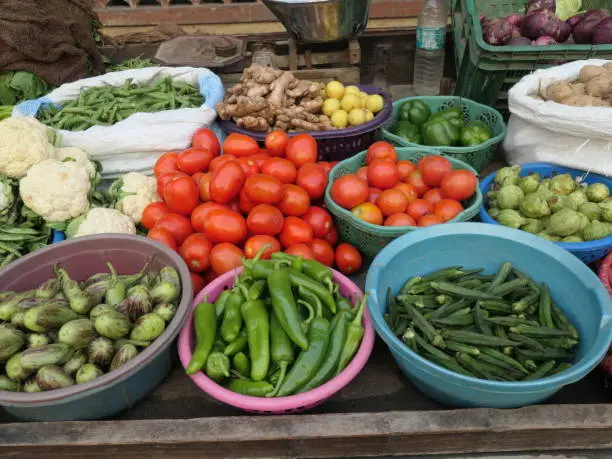
Promoting Food Safety Standards for Cabbage and Eggplant through an Internal Control System (ICS)
In the context of vegetable production, the ICS ensures the good quality of produce, with the premise that farmers follow the concept of Good Agricultural Practices or GAP. The success of the ICS is therefore dependent on the farmers’ basic knowledge on GAP. That being said, an important component in the development of an ICS, apart from mobilizing and clustering farmers, is capacity building. Initial assessment and baseline information from surveys revealed inefficiencies in the farmers’ mode of conventional production, particularly on the use of unregistered pesticide products, inconsistencies in pre-harvest intervals, mismatched application of pesticide on targeted pests, and overdosage of chemical applications resulting in discoloration of certain vegetables harvested. This became the basis for training and workshops which focused on the following topics: (1) Concept of Residues, (2) Optimal Pre-harvest Interval, (3) Label Recommendations, (4) Food and Pesticide Authority (FPA)- registered Pesticides, (5) Use and Misuse of Products, (6) Right Identification of Insect Pests (7) Diseases, Weeds and Other Pest Management Choices, and (8) Resistance Development.
Reference(s):
This policy brief is based on the results of the DOST-PCAARRD-funded project titled “Development of Internal Control System (ICS) for Conventional Cabbage and Eggplant Production that Meet Food Safety Standards (2017).” The project was implemented by University of the Philippines Los Baños led by Dr. Cristina Bajet and Mr. Eric Jhon Cruz.
Market Advisory
Market-related advisory services produced through continuous market scanning to identify customer needs, anticipate competition, and track technological shifts, offering insights on market outlets, emerging demand, and innovations.
This advisory examines the recent varying increase in onion prices in Pangasinan and Metro Manila across regions, despite sufficient national supply, driven by postharvest...
Tomato farmers in Luzon face financial losses due to declining farmgate prices, while consumers still pay high retail costs. Government interventions, market linkages, and post-harvest...
Retail prices of local red onion increased despite the harvest season. The government implemented inspections and importation measures, while research initiatives focused on improving disease...
Tomato prices in the Philippines have surged significantly, putting pressure on consumers and farmers. This article examines price trends, the market outlook, and DOST-PCAARRD initiatives...
Discover the reason for the sudden surge in tomato prices, analyzing supply dynamics, stability strategies, and Philippine agricultural efforts toward international expansion. Image Source: Philippine...
Exploring Onion Production Surge: Implications on Prices, Import Ban Extension, and Farmer Support Initiatives Image Source: The Philippine Star Anticipated Increase of Onion Output in...















